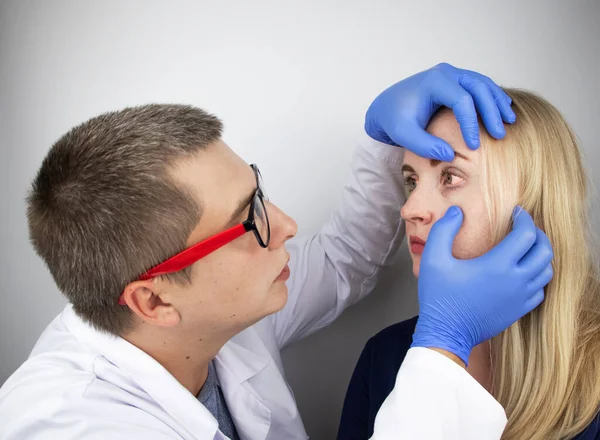Caring for your eyes is essential to maintaining a high quality of life and preserving clear
vision as you age. Our eyes play a critical role in daily activities, from reading and driving to
appreciating the beauty of the world around us. By working with eye care professionals, you
can adopt simple yet effective habits to safeguard your vision—like scheduling regular eye
exams, maintaining a nutrient-rich diet, and limiting screen time. These proactive steps can
help prevent common eye conditions such as glaucoma, cataracts, and macular
degeneration. This guide provides practical tips and strategies to protect your eye health and
ensure lasting, vibrant vision for years to come.
Regular Eye Exams: Your First Line of Defense
Regular check-ups with St. George eye doctors are crucial for maintaining eye health. These
examinations can detect early signs of eye conditions long before symptoms appear,
enabling timely treatment.
The Importance of Comprehensive Eye Exams
A thorough eye exam includes a series of tests designed to assess both your vision and
overall eye health. These exams play a crucial role in detecting conditions such as
glaucoma, cataracts, and macular degeneration at an early stage, greatly enhancing the
success of treatment.
Protecting Your Eyes from UV Light
Exposure to ultraviolet (UV) light can increase the risk of developing cataracts and other eye
conditions. Protecting your eyes from UV rays is an essential step in eye care.
Choosing the Right Sunglasses
Select sunglasses that block 99% to 100% of both UVA and UVB rays. Wearing a wide-
brimmed hat can also provide additional protection against the sun’s harmful rays.
Managing Screen Time
With the increase in digital device usage, eye strain has become a common issue. Managing
screen time effectively is vital for preventing digital eye strain, also known as computer vision
syndrome.
Tips for Reducing Eye Strain
Reduce eye strain with the 20-20-20 rule: every 20 minutes, take a 20-second break to focus
on something 20 feet away. Additionally, adjust your screen’s brightness and contrast to
comfortable levels and ensure your workspace is well-lit. These simple steps can go a long
way in protecting your eyes.
Diet and Eye Health
Maintaining a healthy diet is essential for preserving eye health. Key nutrients such as
omega-3 fatty acids, lutein, zinc, and vitamins C and E play a crucial role in protecting
against age-related vision issues.
Foods for Healthy Eyes
Incorporating foods such as leafy green vegetables, fish, eggs, nuts, and citrus fruits into
your diet can provide these essential nutrients and help maintain good eye health.
Quit Smoking
Smoking doesn’t just harm your lungs—it can significantly damage your eyes as well. It
raises the risk of cataracts, optic nerve damage, and macular degeneration, all of which can
lead to serious vision problems.
Encouraging a Smoke-Free Lifestyle
Quitting smoking can dramatically lower these risks. For those who smoke, consulting
healthcare professionals can provide effective strategies and support to help you
successfully quit.
Stay Hydrated
Proper hydration is crucial for maintaining the health of your eyes. It helps produce tears,
which are essential for keeping the eyes clean and moist.
Importance of Fluid Intake
Ensure you drink plenty of water throughout the day to support overall bodily functions and
eye health.
Conclusion
Maintaining healthy vision requires a proactive and holistic approach. Start with regular eye
exams to catch conditions like glaucoma or macular degeneration early, as timely detection
ensures more effective treatment. Protect your eyes from harmful UV rays by wearing
sunglasses with UV protection or a wide-brimmed hat to prevent sun-related damage. In
today’s digital world, managing screen time is essential—reduce digital eye strain by
following the 20-20-20 rule: every 20 minutes, look at something 20 feet away for 20
seconds.
A nutrient-rich diet also plays a vital role in supporting eye health. Incorporate foods high in
omega-3 fatty acids, vitamin A, lutein, and zinc—such as leafy greens, carrots, and fatty
fish—to lower the risk of conditions like cataracts. Quitting smoking is equally important, as
smoking significantly increases the likelihood of vision loss from cataracts and macular
degeneration. Staying hydrated is another simple yet effective habit, helping to prevent
dryness and irritation by keeping your eyes well-moisturized. By adopting these practices,
you can protect your vision, lower the risk of eye diseases, and maintain optimal eye health
for years to come.
